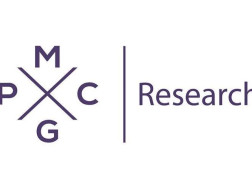Inflation, cost-of-living problems, and emigration - these are the main issues that economists identify as the main threats to the country's economy. This is stated in the updated review of the economic climate of Georgia by "PMC Research Center", which was prepared in November and involved 60 Georgian economists.
The economists assessed the current threats that currently are of the highest importance to the Georgian economy.
Almost 90% think that high inflation currently represents a high or very high threat to the Georgian economy. The majority (77%) deemed the threat posed by Russia’s war in Ukraine to be high or very high, while 72% think the same of the cost-of-living problem.
Meanwhile, the immigration of Russian citizens to Georgia is thought by 50% of respondents to currently present a low or very low threat to the Georgian economy.
More than half of the economists (61%) consider labor emigration a high or very high threat, while on the contrary, 11% think that labor emigration is not a threat to the economy at all.
While the inflation target of the National Bank of Georgia is set at 3%, the annual inflation rate* reached 10.6% in October 2022. The economists were asked to assess which policy approach is likely to be the most effective in tackling inflation in Georgia.
94% of surveyed economists think that tighter fiscal policy is likely to have very high, high, or moderate effectiveness in tackling inflation in Georgia. Similarly, 89% believe in the effectiveness of imposing a tighter monetary policy.
Meanwhile, wage controls and price controls are seen by economists as not effective or having very low effectiveness against inflation. Only 6% think that price controls would have high effectiveness and none of the respondents consider wage controls to have high effectiveness.
Almost 70% do not agree that no additional measures are needed and that the pressures driving inflation will stabilize themselves.
















